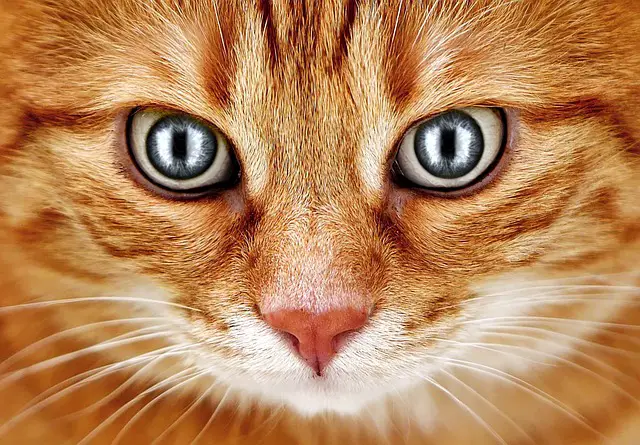Cats are mysterious creatures, and it can be hard to tell how much they understand the world around them. We know cats can learn tricks, recognize their owners, and bond with other animals. But do cats know when they’ve done something wrong? Let’s explore this fascinating question.
Do cats know when they misbehave?
When it comes to animal behavior, there has been a great deal of research conducted over the years to ascertain whether cats genuinely know when they misbehave.
While some studies have indicated that cats understand that specific behavior patterns are wrong, the evidence suggests that felines are more likely to respond to internal cues than consciously know right or wrong.
From an evolutionary perspective, this makes sense, as punishment-based learning strategies tend not to be effective with most animal species.
Ultimately, while domesticated cats may possess a rudimentary understanding of right and wrong, it is unclear whether the level of cognitive performance seen in humans is present in felines.
Do cats feel guilt or remorse?
It’s impossible to know for sure, but experts believe that cats have a sense of right and wrong — at least in the eyes of their humans.
Studies have shown that cats can feel fear, anger, and happiness. They can also recognize when they have done something to upset their owners, although they may not understand why it was wrong in the first place.
Body Language
Cats often express their guilt by displaying body language, such as avoiding eye contact or hiding away after being scolded.
They may also attempt to make up for their transgression with displays of affection such as head-butting, purring, or licking.
This behavior is most likely a result of intuitive survival skills — if a cat has learned that its owner is unhappy with its behavior, it will try to appease them to avoid potential threats or punishments.
It’s important to note that some behaviors are automatic — cats don’t always know what is expected from them, so punishment won’t always stop certain behaviors.
For example, if you don’t want your cat scratching furniture, redirecting its energy toward a scratching post should help more than scolding it every time it does. Positive reinforcement is generally better than punishment when training cats.
Can cats sense when you are mad at them?
It has been suggested that cats may be able to sense our emotions, including when we are feeling mad.
Our feline friends likely pick up on subtle clues in our behavior—such as body language and facial expressions—or even the pitch of our voice to determine whether or not we are angry with them.
While we can’t know for sure what a cat is thinking, many pet owners have anecdotally reported that their cats appear to be extra cuddly or apologetic after they scold them, leading some experts to speculate that cats may have an innate understanding of human emotions.
Further scientific research is needed to understand this relationship between cats and humans better.
How should you reprimand a cat that has done wrong?
Reprimanding a cat for bad behavior can be tricky, as cats are more sensitive than other animals and can pick up on subtle environmental changes.
Rather than using harsh punishments, owners should focus on effectively communicating displeasure to the cat when necessary.
This may include using vocal commands such as “No!” but should also rely heavily on body language and cat behavior.
A gentle stare or stomping of your feet can often be enough to make the cat aware that it has done something wrong.
Additionally, positive reinforcement such as praise or treats is always recommended when a cat displays good behavior.
By giving rewards after good behavior, cats are more likely to repeat this desirable behavior in the future. With an effective combination of reprimands and rewards, cats can learn right from wrong just like any other animal.
Conclusion
In conclusion, while we can never be sure if cats understand right from wrong in the same way humans do, there is evidence suggesting that they recognize when they have done something to displease us and instinctively try to make amends through displays of affection or avoidance. So ultimately, understanding your cat’s behavior and providing positive reinforcement whenever possible should help ensure a happy relationship between you.
[su_box title=”Affiliate Disclosure”]This website is supported by its readers. Please assume that all links are affiliate links. If you make a purchase from one of the links we will make a commission from Amazon. Thank you.[/su_box]




